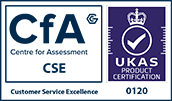Referencing and plagiarism
On this page you will find information about the University of Bradford referencing styles, advice about referencing tools and top tips about referencing. We also provide information on plagiarism, how to avoid it, consequences for plagiarism and FAQs.
Referencing
University of Bradford referencing styles
Your faculty or division has a preferred referencing style. You should be given guidance as to which is the correct style for your course.
- University of Bradford Harvard referencing (all programmes except those noted below)
- OSCOLA (used by Law)
- APA 7 (used by Psychology)
Chemistry students who began their course before September 2024 may opt to continue with University of Bradford Numeric referencing.
For guidance on referencing, contact your subject librarian or personal tutor.
Referencing tools
There are free online tools that will help you reference your work in official University of Bradford referencing styles: University of Bradford – Harvard, OSCOLA (Law) and APA7 (Psychology). The ones that work best are Bibcitation, MyBib or ZoteroBib. All of them are easy to use, and will create citations and references that you can paste into your work.
Please consult our Referencing Tools page for further guidance.
Why do you need to reference and cite correctly?
Citations and References are needed in your assignments to show:
- acknowledgement of the original creator of the work (be it a book, journal, website etc.)
- evidence to back up your argument
- to enable others to investigate your area of research more fully
Using citations and referencing properly will help you:
- avoid plagiarism, and
- increase your grades - check your marking scheme as there are marks awarded for proper referencing.
Insert a citation into the text (using whichever style of referencing you have been told to use) at the exact point where you are referring to the work. You will also need to include the full reference in a bibliography or reference list at the end of your assignment.
Find out more about plagiarism, Turnitin and good academic practice.


